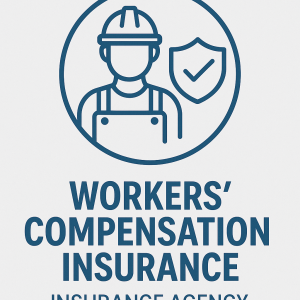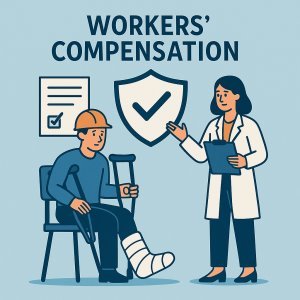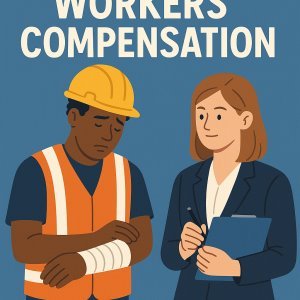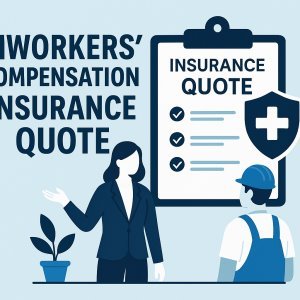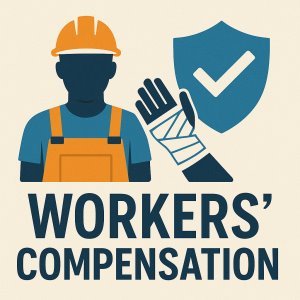
Forecasting Next Year’s Workers’ Comp Budget for Home Health Agencies
July 24, 2025
Enterprise Workers Comp Programs: Coordinating Coverage Across States
July 25, 2025Navigating the complexities of workers’ compensation can feel like walking a tightrope for Georgia nursing home administrators. With stringent regulations and the ever-present risk of costly penalties, ensuring compliance isn’t just a box to check-it’s a vital safeguard for both staff and facility. This article unveils a comprehensive audit checklist tailored specifically for Georgia nursing home workers’ comp, designed to help administrators identify gaps, streamline processes, and avoid the pitfalls that can lead to fines or legal challenges. whether you’re a seasoned compliance officer or new to the role, mastering these key steps will empower you to protect your workforce and your facility with confidence.
Table of Contents
- Preparing for a Thorough Workers’ Compensation audit in Georgia Nursing Homes
- Key Documentation and Record-Keeping Practices to Ensure Compliance
- Identifying Common Pitfalls and How to Address Them Before the audit
- Effective Strategies to Mitigate Penalties and Stay Ahead of Regulatory Changes
- Q&A
- To Conclude
Preparing for a Thorough Workers’ Compensation Audit in Georgia Nursing Homes

To ensure a smooth workers’ compensation audit in Georgia nursing homes, it’s crucial to gather and organize all necessary documentation beforehand. This includes maintaining accurate payroll records, employee classifications, and detailed injury reports. Being proactive with data clarity not only streamlines the audit process but also demonstrates compliance with state regulations. Nursing homes should also review their current workers’ comp policies and confirm that coverage amounts align with staffing levels and job duties to avoid any gaps that could trigger penalties.
Another essential step is conducting an internal pre-audit review using a structured checklist. Focus on:
- Validating employee classifications against Georgia’s specific industry codes.
- Reconciling payroll figures with reported hours and wages.
- Assessing claims history for proper handling and reporting timelines.
- Ensuring consistent safety training records and accident prevention measures are documented.
| Audit Focus Area | Common Issues | Best Practice |
|---|---|---|
| Payroll Accuracy | Misclassified employees | Regular audits and reclassification checks |
| Claims Documentation | Incomplete injury reports | Timely claim submissions with full details |
| Policy Coverage | Underinsured risk exposure | Annual policy reviews based on staffing changes |
Key Documentation and Record-Keeping Practices to Ensure Compliance
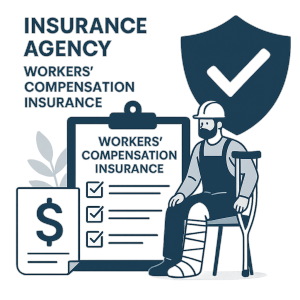
maintaining meticulous records is the cornerstone of navigating workers’ compensation audits successfully. Nursing home employers in Georgia must ensure all injury reports, claim forms, and incident logs are accurately completed and promptly submitted. This proactive approach minimizes discrepancies and expedites claim resolutions. Incorporate digital filing systems to organize employee injury records, doctor’s notes, and correspondence with insurance carriers. Digitization also supports rapid retrieval during audits,which often assess compliance with reporting timelines and procedural correctness. remember, incomplete or late documentation can trigger costly penalties or delays in claim processing.
Establish clear documentation protocols by training staff on proper record-keeping practices and auditing your files regularly to identify gaps. Utilize the following checklist to maintain comprehensive records:
- Accident and Injury reports: Detailed logs including dates, times, descriptions, and witness statements.
- Employee Claims Documentation: all compensation claim forms,medical evaluations,and communication records.
- Return-to-Work Programs: Documents outlining modified duty assignments and medical clearances.
- Training and Safety Records: Records of employee safety training sessions and hazard assessments.
| Document type | Retention Period | Audit Importance |
|---|---|---|
| Incident Reports | 5 years | high |
| Claim Forms | 7 years | Critical |
| Medical Records | Duration of employment + 30 years | Essential |
| Safety Training Logs | 3 years | Moderate |
Identifying Common Pitfalls and how to Address Them Before the Audit
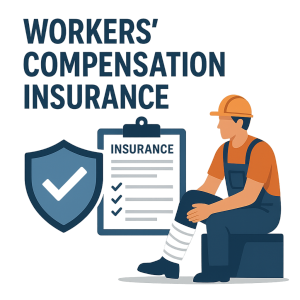
One of the most frequent mistakes nursing home workers encounter during a Georgia workers’ comp audit is incomplete or inaccurate employee classification. Misclassifying employees-such as listing caregivers as administrative staff-can lead to costly penalties and premium recalculations. To avoid this, ensure that job roles are clearly defined and documented, reflecting the actual duties performed. Equally critical is maintaining precise payroll records; discrepancies between reported wages and actual earnings often trigger alarms during audits.Regularly cross-check time sheets, wage reports, and tax filings to spot inconsistencies early.
Another common pitfall lies in overlooking subcontractor and temporary worker arrangements. Since these workers can impact your coverage requirements and risk assessments, all contracts and payments should be meticulously tracked and reported. Additionally,many nursing homes forget to verify compliance with Georgia-specific workers’ comp regulations,which can differ considerably from other states. Implementing a pre-audit checklist that includes a thorough review of these areas can dramatically reduce surprises. Consider utilizing the table below to track potential pitfalls and corrective actions:
| Common Issue | Impact | Suggested Action |
|---|---|---|
| Employee Misclassification | Higher premiums, penalties | Review job descriptions with HR |
| Payroll Discrepancies | Audit flags, delayed audit | Regular payroll audits monthly |
| Unreported Subcontractors | Coverage gaps | Document and report all contracts |
| Non-Compliance with State Rules | Fines, audit failures | Stay updated with GDOL policies |
Effective Strategies to Mitigate Penalties and Stay Ahead of Regulatory Changes

Staying compliant with Georgia’s workers’ compensation regulations requires a proactive approach tailored specifically to nursing home operations. Regularly updating training programs for employees on safety protocols and proper claims procedures not only minimizes the risk of workplace injuries but also demonstrates a commitment to regulatory adherence. Incorporate routine internal audits as part of your operational calendar to identify vulnerabilities before they escalate into costly violations. This process can be streamlined by utilizing digital tracking tools to monitor claim filings, policy renewals, and safety inspections in real-time, ensuring no critical deadlines are missed.
Engaging with state regulatory updates and industry associations can offer valuable foresight on upcoming changes and best practices. Establish a dedicated communication workflow that highlights these shifts for management and staff alike, enabling swift adaptation.Consider implementing the following essential tactics:
- Monthly compliance reviews focused on documentation accuracy and completeness.
- Clear incident response protocols to expedite reporting and reduce penalties.
- collaborative training sessions with legal advisors to interpret complex regulatory language.
| Strategy | Benefit | Frequency |
|---|---|---|
| Internal Safety Audits | minimize injury risks | Quarterly |
| Regulatory Update Briefings | Stay informed of changes | Bi-monthly |
| Employee Training Refreshers | Enhance awareness | Annually |
Q&A
Q&A: Audit Checklist for Georgia Nursing Home Workers’ Comp-Avoid Penalties
Q1: Why is a workers’ compensation audit crucial for nursing homes in Georgia?
A1: A workers’ compensation audit is crucial for Georgia nursing homes because it ensures that employers have accurately reported payroll and classified employees correctly. This helps avoid underpayment or overpayment of premiums, which can lead to costly penalties or gaps in coverage. staying compliant protects both the facility and its staff.
Q2: What are the common triggers that prompt a workers’ comp audit in Georgia nursing homes?
A2: Common triggers include discrepancies in reported payroll, sudden spikes in insurance claims, changes in staffing levels, or random selection by the insurance carrier. Audits may also occur at policy renewal to verify accuracy and adjust premium costs accordingly.
Q3: What should Georgia nursing home administrators prepare before an audit?
A3: Administrators should gather comprehensive payroll records, detailed job descriptions, employee classifications, subcontractor agreements, and any previous audit reports. Accurate documentation shows transparency and helps facilitate a smooth audit process.
Q4: how can correct employee classification impact the audit outcome?
A4: Proper classification is critical because workers’ comp premiums vary by job risk. misclassifying an employee can result in underinsurance or overpayment. Nursing homes must carefully assign correct codes to roles-such as nurses, janitorial staff, or administrative personnel-to reflect accurate risk and payroll exposure.
Q5: Which payroll elements are scrutinized during the audit?
A5: Auditors review wages,bonuses,overtime,and other forms of compensation linked to work duties. It’s important to differentiate between reportable payroll subject to workers’ comp premiums and non-reportable amounts, like voluntary benefits or reimbursements.
Q6: What penalties or consequences can arise from failing a Georgia workers’ comp audit?
A6: Penalties can include substantial back charges for unpaid premiums, interest on overdue amounts, and potential fines. Additionally, non-compliance may jeopardize coverage, exposing the nursing home to legal and financial risks if a workplace injury occurs.
Q7: How can nursing homes minimize risks and avoid penalties from audits?
A7: Regular internal reviews, staff training on classification procedures, maintaining clear payroll records, and working with knowledgeable insurance brokers help minimize errors. Proactive communication with the insurance carrier can also clarify any uncertainties before the audit official starts.
Q8: Are there any Georgia-specific regulations nursing homes should consider in workers’ comp audits?
A8: Yes, Georgia’s Workers’ Compensation Act sets the framework for coverage, claim handling, and penalties. Nursing homes must also be aware of state-specific reporting timelines and classification rules unique to healthcare workers to stay compliant.
Q9: what role does technology play in streamlining the audit planning?
A9: Payroll software and audit management tools can automate record-keeping and flag discrepancies early. Digital organization of employee classifications and wage data reduces human error and accelerates the auditor’s review, saving time and money.
Q10: When should nursing home workers’ comp audits be scheduled or anticipated?
A10: While some audits are random, most occur at policy renewal or following significant payroll changes. It’s wise to prepare quarterly self-audits to stay ahead and correct any issues before the official audit begins.
By understanding these key points and staying organized, Georgia nursing homes can breeze through workers’ compensation audits with confidence-avoiding penalties and protecting their workforce effectively.
To Conclude
In the complex world of nursing home workers’ compensation in Georgia, staying ahead with a thorough audit checklist is more than a compliance exercise-it’s a safeguard for your facility’s financial health and reputation. By methodically reviewing claims, documentation, and regulatory requirements, you ensure not only the well-being of your staff but also a smoother path through the often intricate workers’ comp landscape. Avoiding penalties isn’t just about ticking boxes; it’s about fostering a culture of accountability and preparedness. with the right checklist in hand, Georgia nursing homes can confidently navigate audits, reduce risks, and focus on what truly matters: delivering quality care.
“This content was generated with the assistance of artificial intelligence. While we strive for accuracy, AI-generated content may not always reflect the most current information or professional advice. Users are encouraged to independently verify critical information and, where appropriate, consult with qualified professionals, lawyers, state statutes and regulations & NCCI rules & manuals before making decisions based on this content.”

